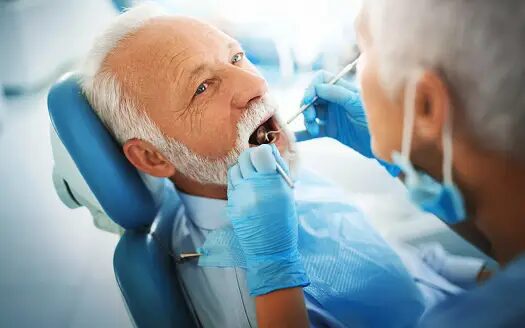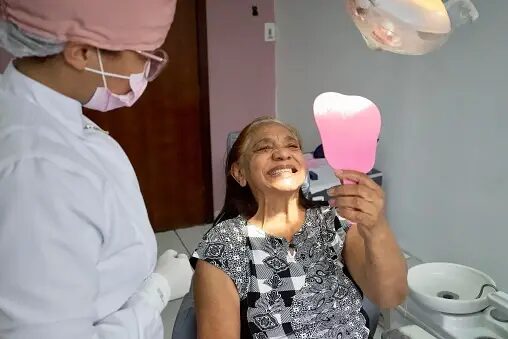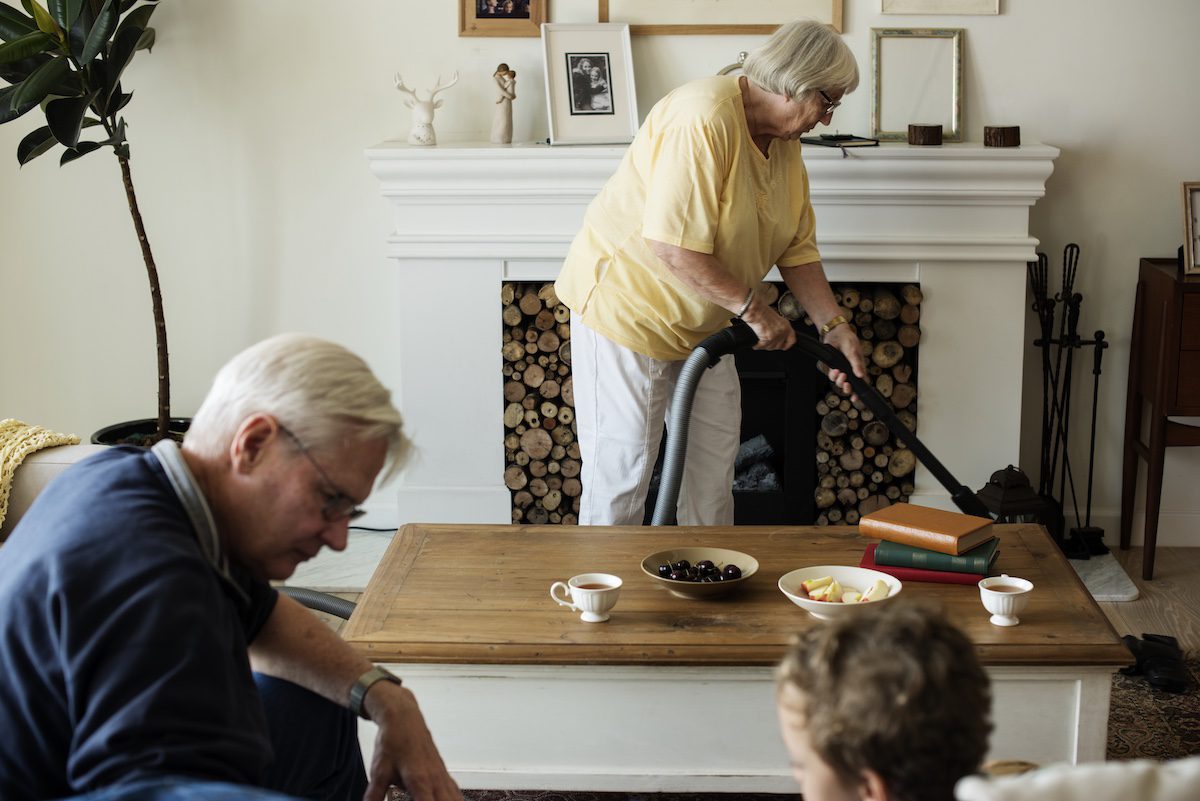Importance
Dental care is crucial for people of all ages, but it becomes especially vital as individuals enter their senior years. Our oral health needs evolve as we age, and maintaining good dental care becomes increasingly important for overall health and well-being. Here are several key reasons why dental care for seniors is essential:
Prevention of Oral Health Issues
Seniors are more susceptible to oral health problems such as gum disease, tooth decay, and oral infections. Regular dental check-ups can help catch these issues early before they escalate into more serious conditions that may require extensive treatment or even lead to tooth loss.
Maintenance of Overall Health
The health of the mouth is closely linked to the health of the rest of the body. Poor oral health has been associated with various systemic conditions, including cardiovascular disease, diabetes, and respiratory infections. Seniors with existing health conditions are particularly vulnerable, making proper dental care even more critical.
Preservation of Natural Teeth
With proper care, many seniors can retain their natural teeth well into old age. Dental check-ups allow dentists to identify and address issues like cavities or gum disease early on, preserving the integrity of natural teeth and avoiding the need for extractions or other invasive treatments.
Improvement of Nutrition and Digestion
Healthy teeth and gums are essential for proper chewing and digestion. Seniors who experience tooth loss or oral pain may have difficulty eating certain foods, leading to nutritional deficiencies and overall poor health. Maintaining good oral health enables seniors to continue enjoying a varied and nutritious diet, promoting better overall health and quality of life.
Prevention of Oral Cancer
The risk of oral cancer increases with age, especially among seniors who may have been exposed to risk factors such as smoking or heavy alcohol consumption earlier in life. Regular dental check-ups often include screenings for oral cancer, allowing for early detection and prompt treatment if necessary.
Management of Chronic Conditions
Many seniors manage chronic health conditions that can impact oral health, such as diabetes or osteoporosis. Proper dental care is essential for managing these conditions effectively, as oral health problems can exacerbate existing health issues or interfere with medication regimens.
Maintenance of Social Confidence
A healthy smile can significantly impact a person’s confidence and self-esteem, especially in social situations. Seniors who feel embarrassed or self-conscious about their oral health may withdraw from social interactions, leading to feelings of isolation and loneliness. Good dental care enables seniors to maintain a bright, confident smile, promoting social engagement and overall well-being.
Prevention of Tooth Loss
Tooth loss is not an inevitable part of aging. With proper care, seniors can maintain their natural teeth for a lifetime. Regular dental check-ups, along with good oral hygiene practices at home, can help prevent tooth loss and the need for costly dental interventions like dentures or dental implants.

Challenges
While dental care for seniors is crucial, accessing it can be challenging due to various factors. These challenges can prevent older adults from receiving the necessary dental care, leading to worsening oral health and potential systemic health issues. Here are some common obstacles seniors face in accessing dental care:
Financial Barriers
One of the most significant challenges seniors encounter is the cost of dental care. Many older adults are living on fixed incomes, making it difficult to afford dental services, especially if they lack insurance coverage for dental procedures. Medicare, the primary health insurance program for seniors in the United States, does not typically cover routine dental care, leaving many seniors to pay out-of-pocket for dental services or rely on supplemental insurance plans that may have limited coverage.
Lack of Dental Insurance
Even for seniors with dental insurance, coverage may be insufficient or may not include certain procedures. Dental insurance plans often have limitations, such as high deductibles, annual maximums, and waiting periods for coverage of major services. Additionally, many older adults cannot access employer-sponsored dental insurance upon retirement, leaving them to navigate the complex and costly individual insurance market.
Limited Mobility
Mobility issues can make it challenging for seniors to access dental care, particularly if they have difficulty traveling to dental offices or clinics. For seniors with mobility impairments or disabilities, transportation to and from appointments may be a barrier, especially if they rely on others for assistance or if public transportation options are limited or inaccessible.
Fear and Anxiety
Dental anxiety is common among people of all ages, but it can be particularly pronounced in seniors who may have had negative experiences with dental care earlier in life or who have developed dental phobias over time. Fear of pain, discomfort, or embarrassment can prevent seniors from seeking dental treatment, leading to delayed care and exacerbating oral health problems.
Lack of Awareness
Some seniors may not fully understand the importance of dental care or may underestimate the impact of poor oral health on their overall well-being. Without adequate education and awareness, older adults may not prioritize dental visits or may neglect routine oral hygiene practices, leading to preventable oral health issues.
Shortage of Providers
In some regions, especially rural areas, there may be a shortage of dental providers who accept Medicaid or offer affordable dental care for seniors. Limited availability of dentists specializing in geriatric care or trained to address the unique oral health needs of older adults can further exacerbate access issues for seniors.
Complex Dental Needs
Seniors often have complex dental needs due to age-related changes in oral health, such as dry mouth, gum disease, and tooth loss. Addressing these issues may require specialized care and expertise, which may not be readily available or affordable for all seniors.
Stigma and Discrimination
Ageism and stereotypes about older adults may contribute to the stigma surrounding dental care for seniors. Some seniors may feel marginalized or overlooked by dental providers, leading to reluctance to seek care or disclose oral health concerns.

Solutions
Improving access to dental care for seniors is a complex issue that requires a comprehensive approach involving various stakeholders. While significant challenges exist, several solutions can help ensure that older adults receive the dental care they need to maintain good oral health and overall well-being.
Expansion of Dental Insurance Coverage
Expanding insurance coverage is one of the most effective ways to improve seniors’ access to dental care. Policymakers can consider options such as including dental benefits in Medicare or creating separate dental insurance programs tailored to the needs of older adults. Increasing funding for Medicaid dental benefits and reducing eligibility requirements can also help low-income seniors access affordable dental care.
Enhanced Medicare Benefits
Medicare Advantage plans often offer dental coverage as an optional benefit, but not all seniors have access to these plans or can afford the premiums. Expanding Medicare to include comprehensive dental benefits as part of its standard coverage would greatly improve access to care for millions of seniors nationwide.
Community Dental Clinics
Establishing community-based dental clinics catering to seniors can help address access issues, especially in underserved areas. These clinics can offer affordable or sliding-scale fees, accept Medicaid, and provide transportation assistance for seniors with mobility challenges.
Mobile Dental Services
Mobile dental clinics equipped with portable dental equipment can bring dental care directly to seniors who are homebound or residing in assisted living facilities, nursing homes, or other long-term care settings. These mobile units can provide preventive services, screenings, and basic dental treatments on-site, eliminating barriers related to transportation and mobility.
Geriatric Dentistry Programs
Increasing the number of dentists trained in geriatric dentistry can help meet the unique oral health needs of older adults. Geriatric dental programs can provide specialized training on issues such as managing chronic conditions, addressing age-related oral health changes, and communicating effectively with older patients.
Policy Advocacy: Advocating for policy changes at the local, state, and federal levels is essential for improving access to dental care for seniors. This includes advocating for increased funding for dental services, supporting legislation that expands insurance coverage, and pushing for regulatory reforms that promote workforce development in geriatric dentistry.
By implementing these solutions in a coordinated manner, we can work towards ensuring that seniors receive the dental care they need to maintain optimal oral health and enjoy a better quality of life in their golden years.



